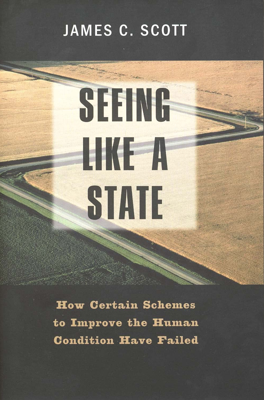Thin Simplifications and Practical Knowledge: Metis
Mētis represents practical, localized knowledge built from experience, honing a nuanced understanding of complex systems more effectively than some scientific approaches. This type of knowledge exemplifies adaptability and resourcefulness in managing resources and solving problems directly related to specific environments.
Thin Simplifications vs. Rich, Local Knowledge
In various state-imposed systems, from collectivized agriculture to scientific forestry, the subtle complexities and practical know-how of local circumstances are often disregarded. Efforts to streamline for simplified control and predictability—ignoring the specifics of ecological and social contexts—frequently lead to ineffective or harmful outcomes. For example, attempts to impose rigid agricultural frameworks often face challenges on the ground that could have been managed with local knowledge and practices.
The Dynamic Nature of Practical Knowledge: Mētis vs. High Modernism
Mētis doesn't conform to the universality of scientific frameworks, which often aim to homogenize and standardize complex realities into one-size-fits-all solutions, making high modernism susceptible to failures when it overlooks or suppresses local adaptability. Practical knowledge thrives on responsiveness and continues to evolve, much like natural languages grow and adapt over time.
Social Engineering and the Risks of Over-Simplification
High modernism's risk is most notable when paired with authoritarianism—when leaders see societal landscapes as blank slates upon which to impose visionary, but often untested, theoretical constructs. This can severely disrupt established social orders and ecological balances. Examples include forced collectivization in the Soviet Union or villagization in Tanzania, where top-down decisions often led to widespread dissent and ecological disruptions.
The Vital Role of Mētis in Sustainable Practices
In contrast, practices embedded with mētis consider environmental and social complexities, responding adaptively to challenges. Sustainable practices often emerge from local innovations and a deep understanding of particular contexts—capabilities that high modernist plans frequently undervalue.
Conclusion: Integration of Epistemic Knowledge with Mētis
While epistemic knowledge provides broad, generalizable frameworks beneficial for structured learning and widescale application, it often falls short without the integration of mētis. The balance between these types of knowledge is crucial; local expertise and ingrained practical skills often fill gaps that scientific methods may overlook, particularly in complex, variable conditions. Tailoring high modernist ambitions to incorporate and respect local knowledge systems could yield solutions that are both innovative and deeply aligned with human and ecological realities.
